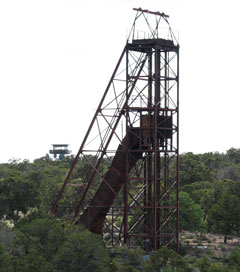Tiny Houses
Living Simply So That Others May Simply Live
by Delo Freitas
It is an interesting time to be looking for a home in America. Though known for capitalism and consumerism, McDonalds and McMansions, emerging counter movements seek to promote sustainable living through the most personal of methods, and the one  most tied up with the American dream — the home. Especially in the face of 2008’s economic crisis, more and more Americans are embracing the “Tiny House Movement,†in which each square foot is utilized to its full potential. Living small is, in its own way, a form of subversion: It decommodifies the idea of “home,†promotes a DIY (Do It Yourself) ethic in one the largest sectors of the U.S. economy, and places control back into the hands of homeowners instead of finance capitalists, speculators and the global market. (more…)
most tied up with the American dream — the home. Especially in the face of 2008’s economic crisis, more and more Americans are embracing the “Tiny House Movement,†in which each square foot is utilized to its full potential. Living small is, in its own way, a form of subversion: It decommodifies the idea of “home,†promotes a DIY (Do It Yourself) ethic in one the largest sectors of the U.S. economy, and places control back into the hands of homeowners instead of finance capitalists, speculators and the global market. (more…)






